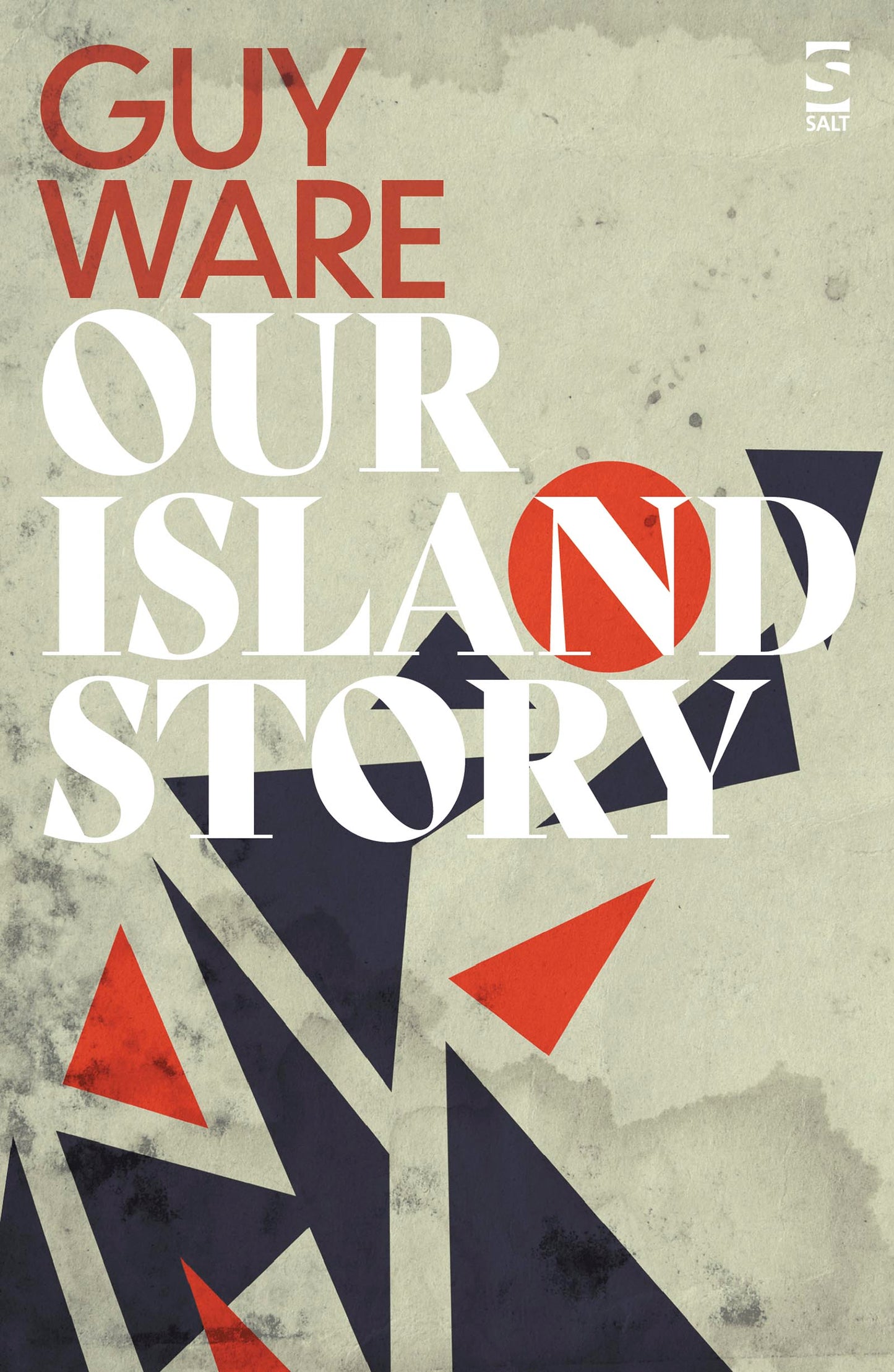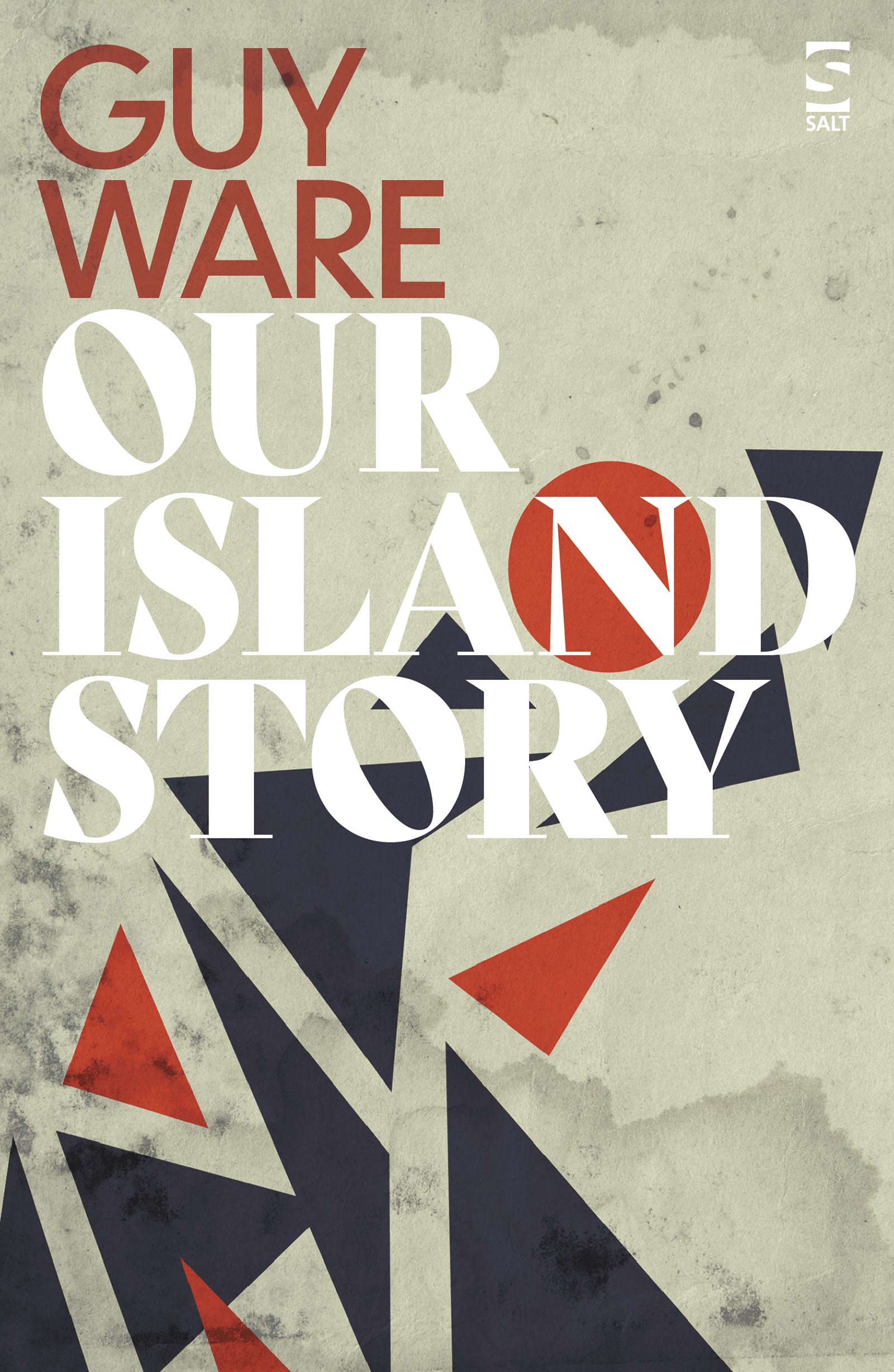Guy Ware
Our Island Story
Our Island Story
ISBN:9781784633134
Couldn't load pickup availability
Synopsis
Denis Klamm, feckless scion of two former Leaders, returns to the Island for his father’s funeral, only to find it sinking. Or the sea rising – it depends what you believe. Either way, they’re all going to drown – unless the young, idealistic and newly-elected Leader, Jessica King, really is the saviour long foretold by Our Island Story.
But Jessica is only Leader because Ari Spencer, the special advisor’s special advisor, has made it so. She wants solutions; Ari offers schemes. She wants to solve the climate crisis, house the homeless and bring justice for the victims of police brutality in a decade-old incident that Ari, for reasons of his own, would rather nobody looked at too closely. Or at all.
While Denis falls under Jessica’s spell and sets out to make the sort of grand romantic gesture guaranteed to attract attention, Ari hatches a plot to pit conspiracy theory against myth, unleashing a maelstrom of populism, ambition, religion, treachery, lawlessness, old wounds and new battles – along with the less familiar forces of love and grief. It won’t save the Island, but it might just save his skin.
The result sweeps cynical politicians and bureaucrats, corrupt policemen, ambitious clerics, former Soviet taxi drivers and would-be poets into a riotous, brutal and surprisingly touching black comedy about our refusal to face reality, even – especially – when it’s about to kill us.
Reviews of this Book
‘Guy Ware’s fifth novel takes place on an unnamed island, and brings together a cast of characters as bizarre as the belief that the Island was, in fact, created during the 1980s in what they call “The Great Simulation”. Politicians, clerics, and would-be poets all have their own means to take control of the Island's future (what little future it may have that is, given that rising seas are claiming it back). Ware’s satire reflects current policies, where politics and individual power take priority over the small, insignificant truth of climate change. Reading the novel had me shouting “But why don’t you do something!” in frustration, much like watching a news broadcast or PMQs. And yet, I still felt completely drawn in by all the characters, no matter how corrupt they happened to be; perhaps in hope that if they finally learned a lesson, we in the real world might too.’ —Kenzie Millar, The Crack
‘Denis’ story is an example of the comedy Ware injects into the novel, yet it also adds to the atmosphere of hopelessness – a futile effort, as futile as the debate over whether the Island is real or a simulation as, either way, no one is intending to take any action that might improve the lives of the Islanders (sound familiar?). Ware satirises contemporary Britain in numerous ways without overloading the novel as the island setting ensures each aspect of comparison is concrete, and the small cast of characters keeps its interactions credible. And so, we have a small group of people, often related, passing power around; debates and even referenda designed simply to create conflict and hinder action; and carefully a curated mythology used to make elevation to power seem inevitable. Ware even manages to throw in an inquiry into police brutality that is constantly delayed, and a spad who is also a poet.’ —Grant Rintoul, 1st Reading
Praise for Previous Work
‘★★★★ For all its topical resonance – amid a national housing crisis and the long aftermath of the Grenfell Tower fire – the novel’s fatalistic register and taut, controlled narrative voice, by turns doleful and sardonic, set it apart from the preachier political allegories that are currently in such oversupply. Ware’s narrator has kept the faith, but he is under no illusions: “the universe is not moral and history has no arc. Its trajectory is an irregular spiral, turning constantly in upon itself ... If there is an end, a destination beyond mere annihilation, it is lost to sight.”’ —Houman Barekat, The Telegraph
‘London itself is a central character here, as seen through the eyes of now 80-something queer quantity surveyor Charlie. We join him on the night of his twin brother's funeral and as he tries to write a eulogy (while getting increasingly sloshed), Charlie recalls the city's journey from the idealism of the actual 1930s Peckham Experiment – which encouraged working-class families to actively participate in their own well-being – to institutional corruption; the power cuts of the three-day week, the rise of Enoch Powell and, above all, the devastating collapse of the tower block that his brother built … there are shades of the great Gordon Burn in Ware's portrait of period, place and class.’ —Stephanie Cross, Daily Mail
‘The novel begins on the eve of JJ’s funeral, with Charlie struggling to write a eulogy for his 85-year-old brother. Confined to a mobility scooter (‘like Dennis Hopper on Medicare’) and drunk on brandy, Charlie is a seductively irreverent narrator. Witty, wise, queer and possessed of a fierce social conscience, he revisits their parallel lives in a fluid monologue that’s as Beckettian as it is Steptoe and Son. Ware is refreshingly sharp on twin psychology: ‘I never believed I’d bury him. I’m older. Surely it should fall to you to bury me… No one wants to be last. We should have gone together… A plane crash.’’ —Jude Cook, The Spectator
Product Details
Extent: 192pp
Format: Paperback
Publication Date: 15-Mar-24
Publication Status: Active
Series: Salt Modern Fiction
Subject: Modern & contemporary fiction (post c 1945)
Trim Size: 198 x 129mm


